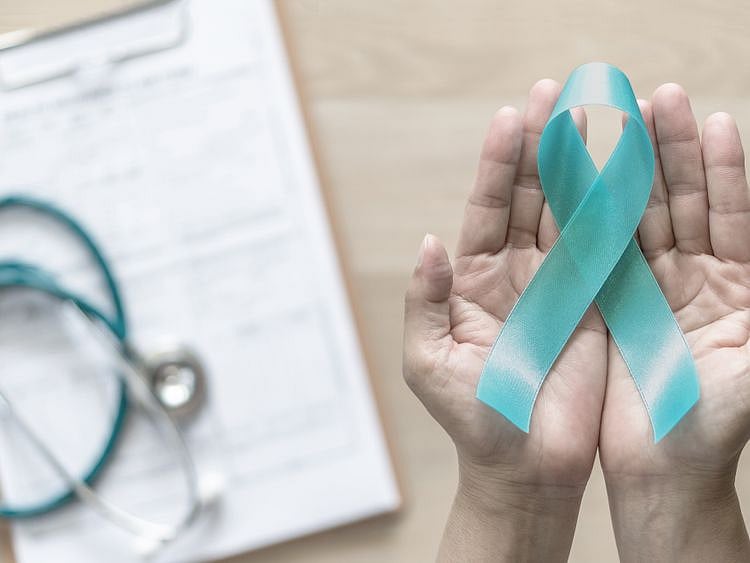UAE to vaccinate 90% of girls aged 13-14 by 2030 to combat cervical cancer
HPV vaccination of boys, pap smear for women from age 25 also part of national strategy

Dubai: The UAE aims to vaccinate 90% of girls aged 13-14 against human papillomavirus (HPV) by 2030 in a bold national strategy aimed at eliminating cervical cancer, it was revealed on Friday.
The national strategy, which also includes expanded HPV vaccination of boys and routine cervical cancer screening of women from age 25, was launched as part of the ministry’s ongoing efforts to promote public health and prevent communicable diseases.
The Ministry of Health and Prevention (MoHAP) said the comprehensive plan as part of a broader public health initiative focuses on combating HPV-related diseases through prevention, early detection, and world-class treatment.
Cervical cancer, caused primarily by HPV, ranks as the fifth most common cancer among women in the UAE, according to official statistics from the National Cancer Registry. Thanks to early preventive efforts, national incidence rates remain below the global average.
Protection for girls and boys
The HPV is a collection of viruses that cause warts on the hands, feet, and genitals. Some types of HPV infection cause warts, and some can cause different types of cancers, particularly cervical cancer.
The UAE has already taken pioneering steps in the fight against HPV. In 2018, it became the first country in the Eastern Mediterranean region to incorporate the HPV vaccine into its national immunisation programme, targeting schoolgirls aged 13 to 14. Building on this success, the programme was expanded in 2023 to include boys in the same age group, further bolstering community-wide protection against HPV-related conditions.
On Friday, MoHAP clarified that the national plan aims to vaccinate 90% of schoolgirls before the age of 15 against HPV by 2030.
Early screening and treatment
The ministry also highlighted the importance of regular cervical cancer screening for women aged 25 to 65, recommending pap smear test every three to five years to ensure early detection and significantly improve chances of recovery.
The ministry highlighted that early diagnosis can significantly increase recovery rates and reduce the burden on the healthcare system.
This intensified focus on awareness and prevention is closely tied to the UAE’s "Year of Community" initiative, which emphasises shared responsibility for public health. The government believes that promoting early screening and expanding access to vaccination are critical to achieving a healthier, more resilient society.
Beyond prevention, the UAE’s strategy includes providing advanced treatment to those affected by HPV-related diseases, in line with the highest international medical standards, reinforcing the UAE’s commitment to the global strategy to eliminate cervical cancer.
HPV vaccination cost
The HPV vaccine is administered intramuscularly. For individuals receiving the vaccine before their 15th birthday, a two-dose schedule is recommended with a duration of six months between each dose. For those aged 15 years and above, a three-dose vaccine schedule is advised, with doses administered at 0, 1, and the third dose between three to six months, doctors had told Gulf News earlier.
Whether it is for boys or girls, the vaccine is given free of cost for Emiratis.
The cost for the vaccine for expats differs depending on the private healthcare facility, ranging from Dh600 to Dh1100 per dose, according to charges quoted online, said a Gulf News report last year.
Global recognition
The World Health Organisation (WHO) has recognised the UAE’s efforts, commending the integration of the HPV vaccine into its advanced immunisation infrastructure. MoHAP reaffirmed its commitment to aligning with global targets, including the WHO’s strategy to eliminate cervical cancer as a public health issue.
Sign up for the Daily Briefing
Get the latest news and updates straight to your inbox
Network Links
GN StoreDownload our app
© Al Nisr Publishing LLC 2026. All rights reserved.